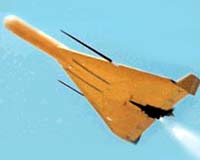| . |  |
. |
Washington (AFP) Jan 2, 2010 The administration of US President Barack Obama believes domestic unrest and signs of unexpected trouble in Iran's nuclear program make the country's leaders particularly vulnerable to strong and immediate new sanctions, The New York Times reported late Saturday. Citing unnamed officials, the newspaper said the long-discussed sanctions proposal comes as the administration has completed a fresh review of Iran's nuclear progress. Obama's strategists believe Iran's top political and military leaders were distracted in recent months by turmoil in the streets and political infighting, and that their drive to produce nuclear fuel appears to have faltered, the report said. The White House wants to focus the new sanctions on the Islamic Revolutionary Guards Corps that is believed to run the nuclear weapons effort, The Times said. Although repeated rounds of sanctions over many years have not dissuaded Iran from pursuing nuclear technology, an administration official involved in the Iran policy said the hope was that the current troubles "give us a window to impose the first sanctions that may make the Iranians think the nuclear program isn't worth the price tag," the paper noted. The Obama administration officials said they believed that Iran's bomb-development effort was seriously derailed by the exposure three months ago of the country's secret enrichment plant under construction near the holy city of Qom, the report pointed out. Exposure of the site deprived Iran of its best chance of covertly producing the highly enriched uranium needed to make fuel for nuclear weapons, The Times said. In addition, international nuclear inspectors report that at Iran's plant in Natanz, where thousands of centrifuges spin to enrich uranium for nuclear fuel, the number of the machines that are currently operating has dropped by 20 percent since the summer, a decline nuclear experts attribute to technical problems, according to the report. Others, including some European officials, believe the problems may have been accentuated by a series of covert efforts by the West to undermine Iran's program, including sabotage on its imported equipment and infrastructure, the paper said. These factors have led the administration's policymakers to lengthen their estimate of how long it would take Iran to accomplish what nuclear experts call "covert breakout" -- the ability to secretly produce a workable weapon, The Times noted. "For now, the Iranians don't have a credible breakout option, and we don't think they will have one for at least 18 months, maybe two or three years," the paper quotes one senior administration official as saying. The administration has told allies that the longer time frame would allow the sanctions to have an effect before Iran could develop its nuclear ability, The Times said.
earlier related report The Chinese firms are continuing to do brisk trade with US companies and the indications are that US sanctions have become so numerous and complex that they have become difficult to enforce, the Wisconsin Project on Nuclear Arms Control said. "We spend a lot of time convincing other countries that we need tighter sanctions on Iran when we need to better enforce our own laws already on the books," says Wisconsin Project director Gary Milhollin, a former Pentagon consultant on nuclear-proliferation matters. The sanctions breach by Chinese firms comes at a time when President Barack Obama considers a fresh batch of sanctions against Iran for harboring suspected nuclear weapons ambitions. The Wall Street Journal said it consulted some US companies who said they were unaware they were doing business with banned entities. The Treasury Department's Office of Foreign Assets Control, tasked with policing the sanctions regime, has not fined any US companies for trading with Chinese companies banned in 2006, The Wall Street Journal said.
Share This Article With Planet Earth
Related Links Learn about nuclear weapons doctrine and defense at SpaceWar.com Learn about missile defense at SpaceWar.com All about missiles at SpaceWar.com Learn about the Superpowers of the 21st Century at SpaceWar.com
 Israelis ponder the perils of hitting Iran
Israelis ponder the perils of hitting IranTel Aviv, Israel (UPI) Dec 30, 2009 Amid mounting concern that Israel may unleash pre-emptive strikes against Iran to attack its nuclear facilities, some Israeli commentators are preaching restraint. They warn that Israel does not have the firepower to deliver a knockout blow to Iran's perceived drive for nuclear weapons and faces a potentially withering Iranian retaliation the likes of which they have never endured befor ... read more |
|
| The content herein, unless otherwise known to be public domain, are Copyright 1995-2009 - SpaceDaily. AFP and UPI Wire Stories are copyright Agence France-Presse and United Press International. ESA Portal Reports are copyright European Space Agency. All NASA sourced material is public domain. Additional copyrights may apply in whole or part to other bona fide parties. Advertising does not imply endorsement,agreement or approval of any opinions, statements or information provided by SpaceDaily on any Web page published or hosted by SpaceDaily. Privacy Statement |